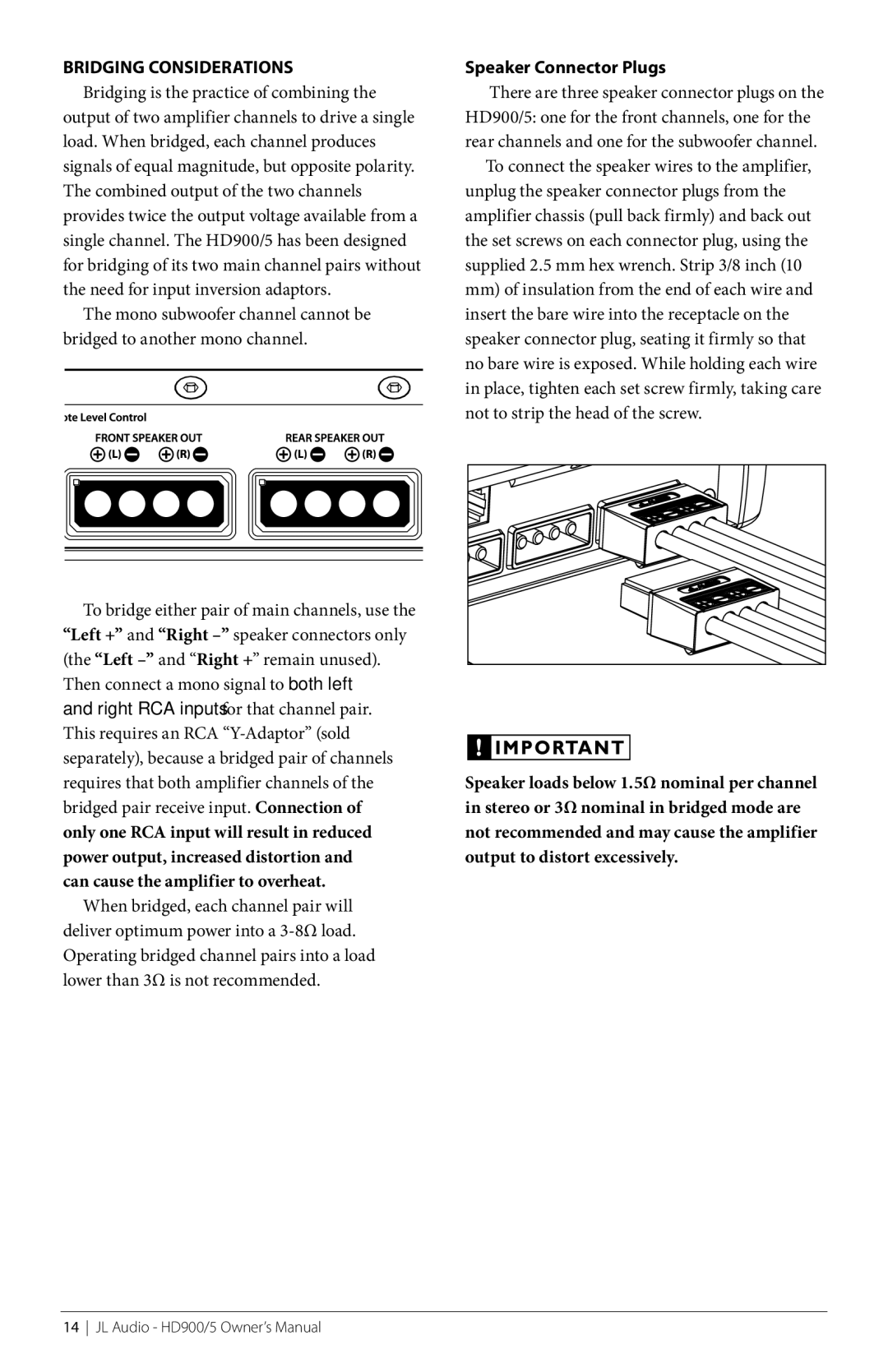
Bridging Considerations Bridging is the practice of combining the
output of two amplifier channels to drive a single load. When bridged, each channel produces signals of equal magnitude, but opposite polarity. The combined output of the two channels provides twice the output voltage available from a single channel. The HD900/5 has been designed for bridging of its two main channel pairs without the need for input inversion adaptors.
The mono subwoofer channel cannot be bridged to another mono channel.
To bridge either pair of main channels, use the “Left +” and “Right
and right RCA inputs for that channel pair. This requires an RCA
When bridged, each channel pair will deliver optimum power into a
Speaker Connector Plugs
There are three speaker connector plugs on the HD900/5: one for the front channels, one for the rear channels and one for the subwoofer channel.
To connect the speaker wires to the amplifier, unplug the speaker connector plugs from the amplifier chassis (pull back firmly) and back out the set screws on each connector plug, using the supplied 2.5 mm hex wrench. Strip 3/8 inch (10
mm)of insulation from the end of each wire and insert the bare wire into the receptacle on the speaker connector plug, seating it firmly so that no bare wire is exposed. While holding each wire in place, tighten each set screw firmly, taking care not to strip the head of the screw.
Speaker loads below 1.5Ω nominal per channel in stereo or 3Ω nominal in bridged mode are not recommended and may cause the amplifier output to distort excessively.
14 JL Audio - HD900/5 Owner’s Manual
